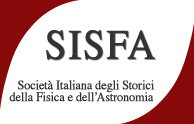Speaker
Description
In recent years, an increasing amount of digitally available historical texts has become available, and the use of computational tools to explore such masses of sources can be of invaluable help to historians of science. The computational approach has made new tools and models available for historical analysis which have allowed an interpretation of historical texts less linked to the preferences of the scholar. For example, in the history of ideas/concepts, the computational approach has allowed the interpretative models constructed by science historians to be verified in a more precise manner.
In this presentation we want to introduce a corpus of Mach's english-language writings in such a way that it can be used for computational analysis. In particular, the corpus will be annotated for subsequent conceptual analysis.
Furthermore, we will try to highlight some characteristics of the corpus as a whole and its initial representation with semantic spaces using depp-learning tools such as the Word2Vec algorithm. Finally, we will indicate some analysis models that can facilitate the conceptual study of Mach's work.

